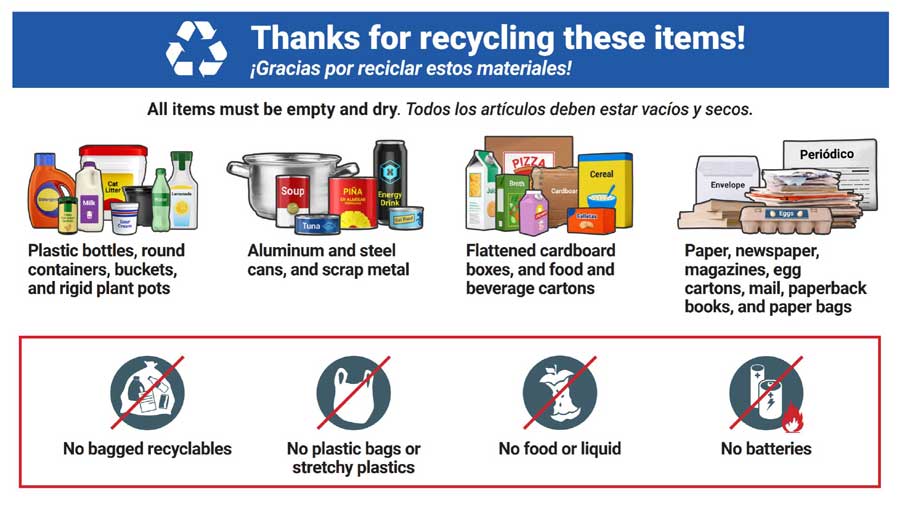Oregon House bill would protect caregivers, residents with enhanced staffing
Published 1:30 pm Wednesday, January 15, 2025

- Bobbie Kolada was on life support with a broken neck and a brain bleed following an apparent attack Feb. 20 by a developmentally disabled man for whom she cared at a group home in Medford. Kolada died March 27.
An Oregon House bill up for review during the 2025 legislative session, which kicks off Tuesday, would require increased staffing ratios in circumstances where the safety of caregivers providing for high-needs developmentally disabled residents could be put in jeopardy.
State Rep. Pam Marsh, D-Ashland, who called the bill a “modest but informed first step” toward improving safety for both workers and those they care for, said she drafted House Bill 3168 in response to ongoing safety concerns for care providers around Oregon.
Marsh said the death of 66-year-old Medford caregiver Barbara “Bobbie” Kolada — and injury to countless other caregivers — was a driving factor behind the bill. Kolada, a 5-foot-4 grandmother, had been injured dozens of times before she was fatally injured Feb. 20, 2023, during a night shift at Medford group home run by Grants Pass-based Partnerships in Community Living.
Family and colleagues said Kolada had voiced concerns to her employer about caregivers working alone in situations where residents’ behaviors could become physically dangerous. Kolada’s death in the intensive care unit of a local hospital, five weeks after she was discovered by a shift change several hours after being injured, was the subject of an award-winning five-part investigative series by the Rogue Valley Times.
PCL officials reported the injury as a medical episode, and a police report was not filed until Kolada’s family requested further investigation by Medford police. The Jackson County District Attorney’s office later confirmed that a resident, a male, “likely” caused Kolada’s injuries but declined to pursue formal charges.
Kolada’s family filed a wrongful death suit over the summer, seeking $10 million in damages and naming as defendants Partnerships in Community Living Inc., PCL co-founder Joanne Fuhrman and the state of Oregon to include the Department of Human Services and the Office of Developmental Disabilities Services.
If approved, Marsh said House Bill 3168 would direct the state Department of Human Services to adopt rules to require an agency that hires, trains and supervises direct support professionals using state funds received from the department to implement enhanced staffing ratios under specified circumstances. The bill also calls for residential training homes or facilities serving a high-needs resident to provide to the department a staff safety plan that addresses specified issues.
The current rate model for services includes a wage assumption, and agencies are allowed to receive an increase in the wage assumption that incorporates the ability to provide for residents with exceptional needs, Marsh said. However, a provider is not currently required to use the the increased funds for these purposes. House Bill 3168 would give DHS the ability to enforce the application of increased funds toward expanded staffing levels and the care of high-needs residents.
“This is not a final solution but a very modest, but informed, first and necessary step toward keeping both workers and residents safe,” Marsh told the Times this week.
“There is so much need for investment in the whole DD (developmental disabilities) system. There are arguments that we should have more staffing, better paid staff, more oversight. … What I wanted to do here was to put down a marker to, at the very least, make sure that workers who are serving residents who are high-needs have adequate staffing as well as access to an emergency safety plan.”
Marsh said she hoped the bill would help to “start the conversation around safety” and push for intervention in unsafe situations, noting “The most damning part of the whole story was the number of workers comp claims Bobbie had had before that final incident. The pattern was already established.”
Just a month away from the two-year anniversary of her mother’s fatal injury, Portland resident Jessica Bandy McFeron told the Times this week that she was grateful for Marsh’s efforts. McFeron said it was “surreal” to read legislation being proposed in connection with her mother’s death.
“It really matters to me that Pam is saying that this isn’t right and that things can be done to protect these workers. There are a lot of people that have said they believe it wasn’t right, what happened to my mom, but not really anyone is doing anything about it,” McFeron told the Times.
“I’m really proud of my mom because this will mean more people are safe, which is all she ever wanted.”
McFeron said she hopes for statewide change in all realms of caregiving, including mental health group care homes. Only months after her mother’s death, 26-year-old mental health aide Haley Rogers was stabbed to death in July 2023. Rogers was working the night shift alone at the 10-bed McCarthy Place in Gresham, a transitional housing facility for individuals struggling with mental illness. Rogers’ body was not found for several hours.
James Calvin Smith, a resident of the facility who been deemed “dangerous and psychotic” as far back as the late 1980s and had a history of violent attacks, was arrested and is charged with second-degree murder and unlawful use of a weapon. His pre-trial conference was set for Tuesday afternoon, but Smith waived his right to appear, according to court records.
Courtney Graham, political director for SEIU Local 503, applauded Marsh’s efforts to “keep dialogue about worker safety at the forefront of the current legislative session.” In addition to effective new legislation, Graham said enforcement and oversight of existing laws is crucial for worker safety.
“Staffing is an issue that affects not just the people who work in facilities. It affects the people who live there, too. This is about having the reasonable expectation of a safe place to live and to work,” Graham said. “We have seen safe staffing ratios be successful in nursing homes and other settings.
“We appreciate Representative Marsh bringing this bill forward and look forward to working with her on it. I think, given what happened to Bobbie, this is an important first step forward in the right direction.”
Contacted by the Times, Fuhrman declined to comment.
McFeron, who said a lack of dialogue or promised change by PCL prompted her civil suit, noted the irony of “needing a law to tell employers to do what’s right.” McFeron said she “fought for two years” for “acknowledgement from workers comp” that her mother’s injuries were work-related. She said she’s “haunted by the not knowing” whether additional staffing could have resulted in a different outcome for her mom.
“We will never know what we lost in that three hours that are unaccounted for, but I’ll be damned if I’ll sit back and let someone else, like Haley or my mom, just lie there,” McFeron said. “This is an industry of people caring for people, but yet I have not felt my mother being cared for in any stage of this. It’s not what I think anyone expected out of an industry that’s intended to care for others.
“My mom loved what she did and I just want her friends and her colleagues to be safe. … It’s all still so surreal,” McFeron said. “Some days it’s still like, ‘Did this really happen?’ But then at the same time you’re confronted with the horror of it all and the realization that, yes, it did happen and it could happen again and again until somebody does something. At the end of all this, I just don’t want my mom to have died in vain … or anyone else’s mom to die in vain.”
She added, “These are people caring for other people, and I just feel like we owe the same respect.”










